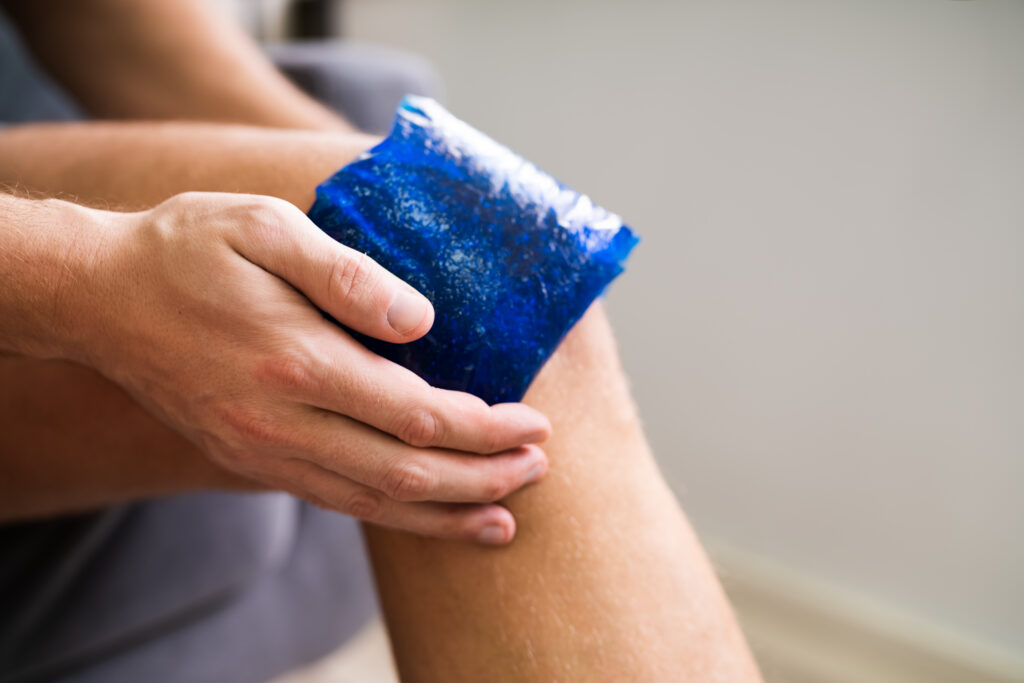May 19, 2023
Seven Common Causes of Aching Legs at Night
Aches and pains in your legs aren’t always a sign of a serious condition. You may simply be experiencing pain from using your joints and muscles all day long. Aching legs can also be a side effect of taking certain medications or lifestyle choices such as alcohol consumption. Some of the most common causes of aching legs at night include:
·Restless leg syndrome: Restless leg syndrome doesn’t always cause leg pain. Instead, it’s marked by sensations in the legs, such as an overpowering need to move your legs. You may also have crawling, burning or pulling sensations, as well as restlessness.
·Daytime activities: The way you use your legs during the day can affect how you feel at night. Vigorous exercise, long periods of standing or prolonged sitting in an awkward position can cause your legs to feel tired and act at night. Being too sedentary can also lead to leg discomfort.
·Pregnancy: Many people experience leg cramps, aches in the legs and feet and restless leg sensations during pregnancy. The discomfort typically goes away after giving birth.
·Certain medications: Medications such as diuretics, steroids and antidepressants are associated with nighttime leg pain and cramping.
·Alcohol consumption: Some people experience pain in their legs after consuming alcohol. In some cases, it may be linked to problematic drinking or excessive drinking.
·Age: Nighttime leg pain and restless leg syndrome are more common for older adults. People over 60 are prone to leg cramps that occur once a month or more frequently. Some age-related nighttime leg pain can be due to the natural shortening and stiffening of the tendons that occurs over time.
·Dehydration: Some people experience pain in their legs if they don’t consume enough fluids during the day.
Potential Health Conditions Associated with Aching Legs at Night
Leg pain can also be a sign of more serious health conditions. Blood clots can form in the legs and cause excruciating pain, along with swelling, discoloration and heat in the affected leg. This is a medical emergency because a clot can move through your bloodstream and damage your heart, lungs or brain. If you believe you have a blood clot, call your doctor or emergency services right away.
Other conditions that can lead to leg pain at night include:
·Heart disease: conditions such as coronary artery disease, peripheral after disease or high blood pressure can cause leg pain. These conditions affect blood flow to your extremities, which can cause aching in the legs and feet.
·Diabetes: Diabetes and side effects of diabetes, such as diabetic neuropathy, are known to lead to pain in the feet and legs.
·Osteoarthritis: Osteoarthritis, a condition that causes damage to the cartilage in your joints, is a very common reason for pain in the hips, knees, ankles and feet.
·Kidney, liver or thyroid conditions: Conditions such as thyroid disease, cirrhosis of the liver or kidney failure are all associated with leg pain.
·Chronic illnesses: Certain chronic illnesses such as Parkinson’s Disease and ALS or other conditions that affect nerve functions can cause leg pain.
Treatment Options for Aching Legs at Night
If your leg pain is caused by an underlying health condition, you should talk to your doctor about treatment options. You should not make any changes to your current treatment plan, including medication changes, without talking to your doctor first.
Other treatment options can vary depending on the cause of leg aches at night. Some effective remedies include:
·Pain medicine: If you are having leg pain caused by physical activity or arthritis, over-the-counter pain medicines such as ibuprofen or acetaminophen may provide relief. If you are taking other medications, you can ask your doctor if OTC pain medicine is safe for you to use.
·Stretching and massage: Gentle stretching can loosen tight muscles and ligaments and reduce the chances of aches and pains at night. If you develop a cramp at night, stretches such as flexing and then relaxing your leg may relieve the pain and tension in the cramped muscle.  Firmly but gently massaging painful muscles can also relieve minor pain and help relax muscles that have cramped up.
Firmly but gently massaging painful muscles can also relieve minor pain and help relax muscles that have cramped up.
·Hot or cold compress: Applying heat or cold can soothe pain in your legs. To apply ice, you can use an ice pack wrapped in a towel to protect your skin from extreme cold. To apply heat, you can use a heating pad or a cloth soaked in warm water.
·Change position: You may find that standing up, walking around or elevating your legs helps with pain.
When to See a Doctor
You should see a doctor right away if you have severe leg pain that doesn’t go away on its own. You should also talk to a doctor right away if you are concerned about a blood clot.
If you have a known condition such as diabetes or cardiovascular disease and you have new or worsening leg pain, you should call your doctor to tell them about it. It may be a sign that you need to make changes to your current treatment plans.
If you are having frequent leg pains at night that are interfering with your sleep, you can talk to one of the providers at Texas Health Care Associates. The providers at all of our locations can discuss your nighttime leg pain and help determine the cause. We will work with you to make a treatment plan and help you get pain-free sleep.
References:
1.”Leg Cramps.” Cleveland Clinic. Last reviewed August 3, 2020. https://my.clevelandclinic.org/health/diseases/14170-leg-cramps
2.”Deep Vein Thrombosis (DVT).” Mayo Clinic. No date. https://www.mayoclinic.org/diseases-conditions/deep-vein-thrombosis/symptoms-causes/syc-20352557
3.”Night leg cramps.” Mayo Clinic. March 2, 2023. https://www.mayoclinic.org/symptoms/night-leg-cramps/basics/causes/sym-20050813
DISCLAIMER
The information featured in this site is general in nature. The site provides health information designed to complement your personal health management. It does not provide medical advice or health services and is not meant to replace professional advice or imply coverage of specific clinical services or products. The inclusion of links to other web sites does not imply any endorsement of the material on such websites.